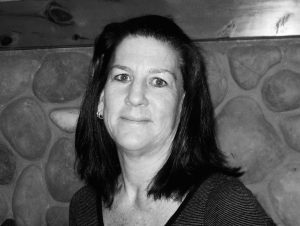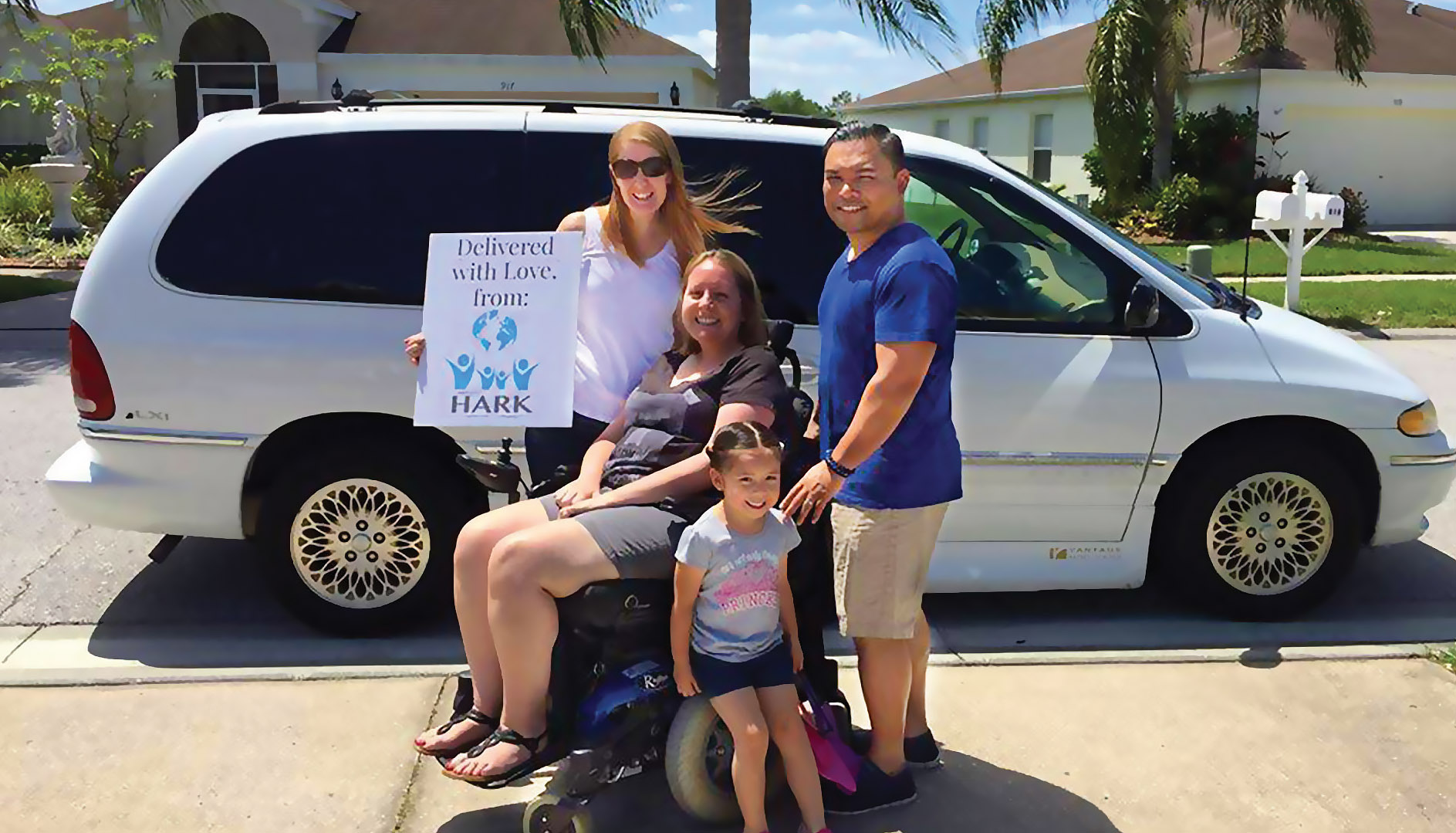Charlie Dourney ’54 was an athlete. He pitched at Seton Hall. He gave tennis lessons. His body could do great things. Then, slowly, he started not to be able to do even simple things. Like breathing easily — or swallowing. His daughter, Donna Dourney York ’80 saw it all happen, and she watched him die 10 years ago from Lou Gehrig’s disease, or amyotrophic lateral sclerosis (ALS).
But Charlie Dourney’s spirit didn’t die with him.
His spirit lives on in handicapped-accessible vans. It’s in a house that was renovated to help someone with ALS use it. It’s in the more than $1 million raised to fund these kinds of projects or used to help pay health bills piling up on people, Dourney York says.
Seeking to help others facing financial uncertainty and other difficulties that come with the disease, Dourney York founded HARK, (her father’s nickname) in 2011. The organization has provided 14 vans to those who need one and sent organization members to towns to assist with fundraisers.
 “You just don’t know what it’s like unless you go through it,” she says. “The body just betrays you. My father was lucky he was in the military and had coverage for it. Many people don’t, and financial ruin can follow.”
“You just don’t know what it’s like unless you go through it,” she says. “The body just betrays you. My father was lucky he was in the military and had coverage for it. Many people don’t, and financial ruin can follow.”
She also provides a personal touch, reaching out by phone to those affected by ALS. “They can become a part of your family,” says Dourney York, who serves as president of the nonprofit, based in Hillsborough, New Jersey.
Donna Dourney York ’80Dourney York credits the University with helping her become more focused. Her tennis coach, Sue Patton — now a member of Seton Hall’s Hall of Fame — helped show her how to channel her energies and become a leader. Dourney York became team captain in her senior year, a responsibility she really wanted.
Yet her role today at HARK is one she does not want, because she hopes research will eradicate ALS and make her help obsolete. “My father was 79 when he died, but we helped raise money for someone who later passed away in his 30s,” she says. “This disease is cruel. … You just want to make lives better for those who are dealing with it.”
Eric Butterman




